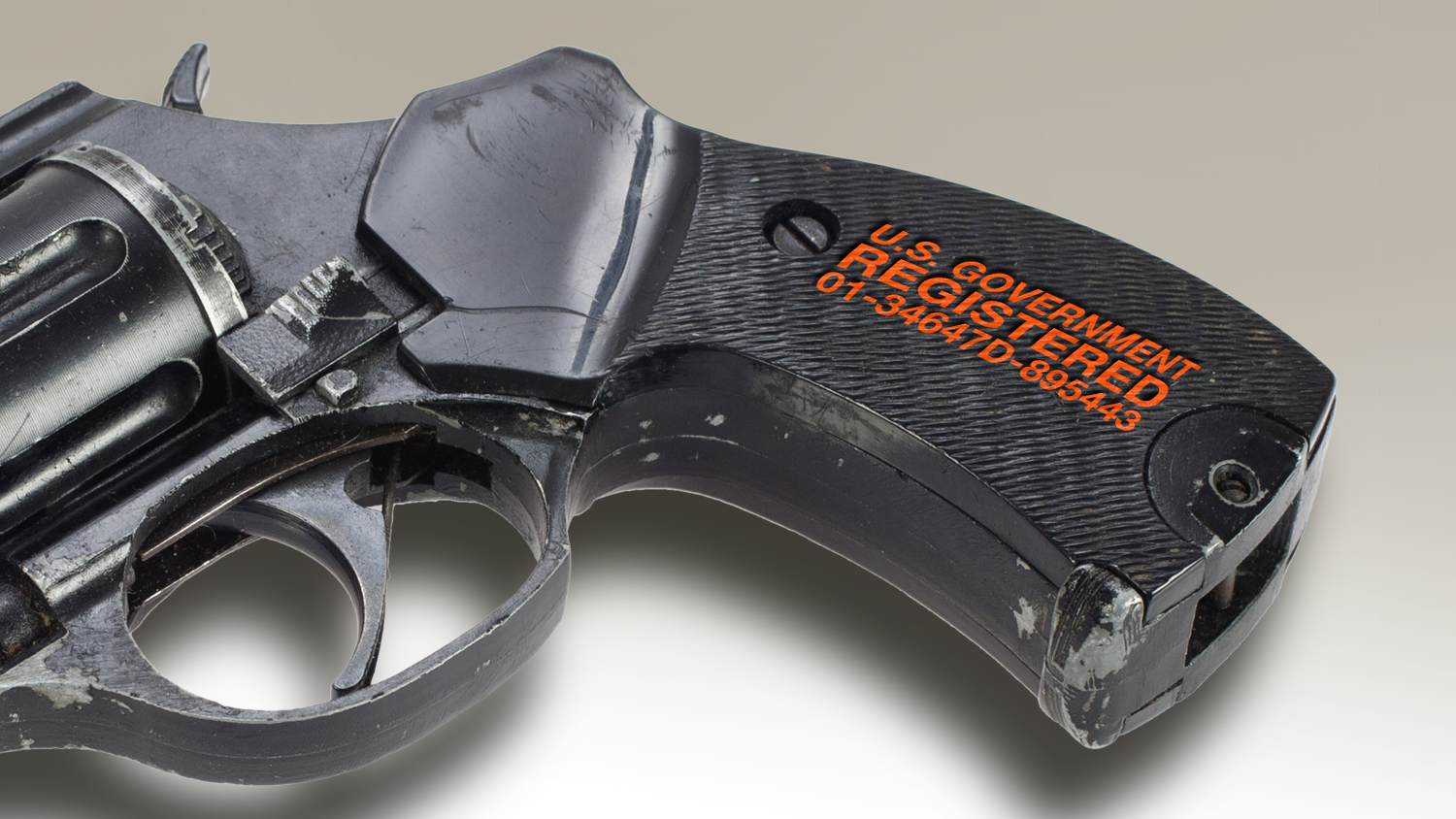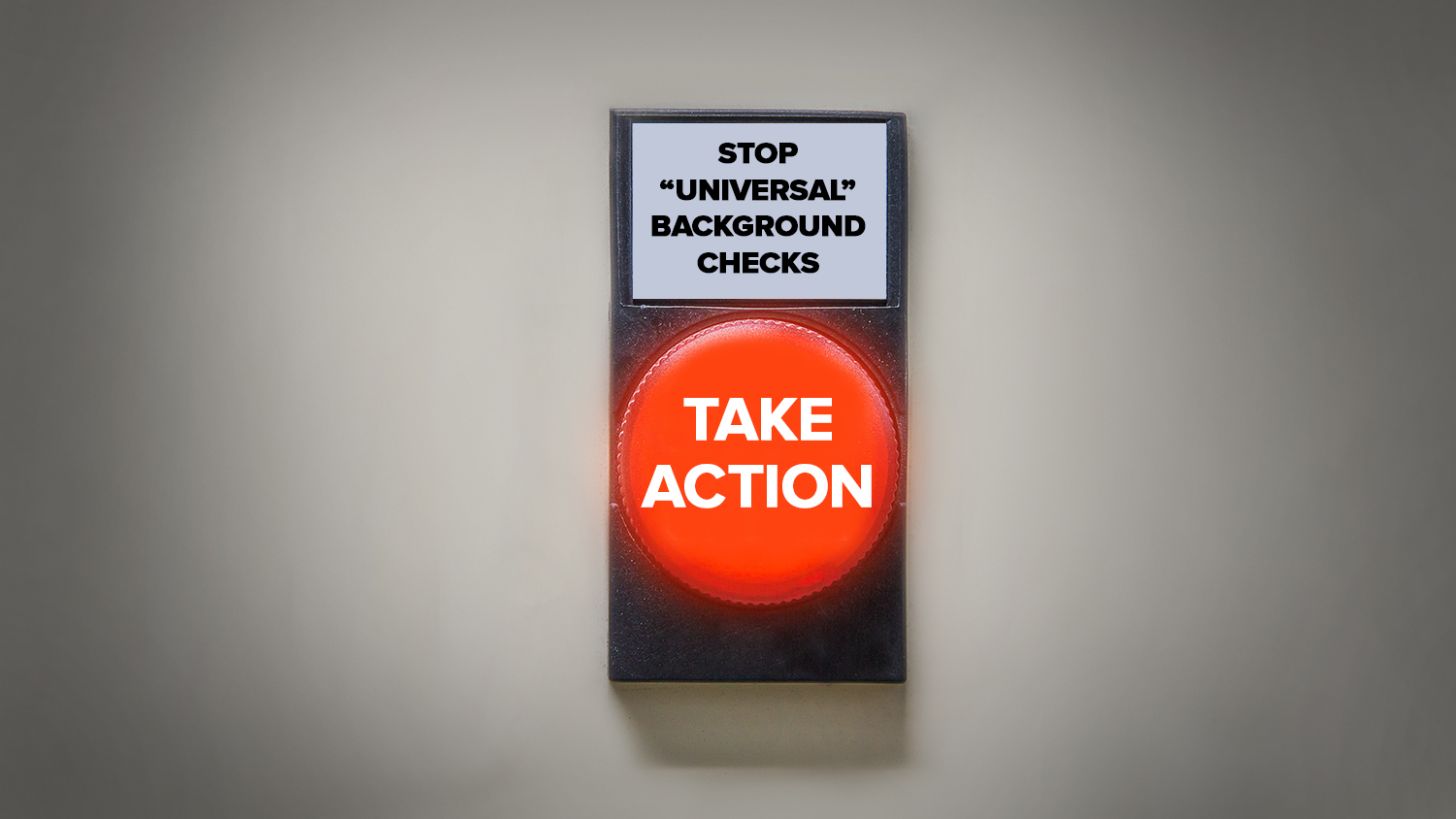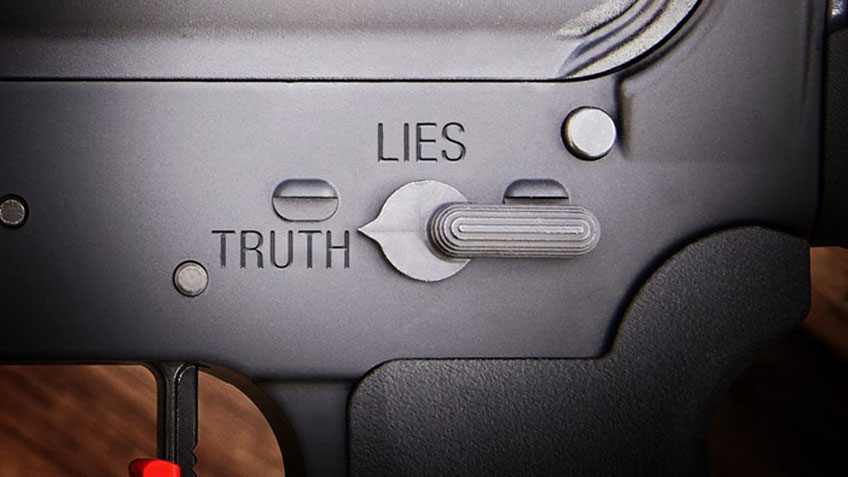THE TRUTH ABOUT SO-CALLED "UNIVERSAL" BACKGROUND CHECK LEGISLATION H.R. 8
As proposed, H.R. 8 would forbid a person from transferring a firearm to another person unless facilitated through a licensed firearms dealer. Both parties to the transfer must appear jointly at a willing dealer, who must conduct a background check through the National Instant Criminal Background Check System and comply with all state and federal requirements as though he were selling or transferring a firearm out of his own inventory.
While proponents of the bills often refer to it as a background check on sales of firearms, the true effect of H.R. 8 would be criminalizing otherwise lawful conduct with firearms. The overbroad nature of the proposed legislation would criminalize many transfers that take place as part of hunting, recreational shooting, and even self-defense.
CURRENT LAW
The law regarding sales and transfers of firearms generally follows the sales of most regulated products in the United States. Commercial sales are heavily regulated, but incidental sales and transfers by persons not in the business of selling firearms are not subject to some of these regulations.
Current federal law requires that “dealers” of firearms hold a federal firearms license and that any person who acquires a firearm from a dealer passes a background check that includes an inquiry of the National Instant Criminal Background Check System (“NICS”).
In addition to the federal requirements on licensed dealers, current federal and state law prohibits anyone from knowingly transferring a firearm to a prohibited person or to a person who is a resident of another state.
ABOUT H.R. 8
On March 1, two bills were introduced in Congress to impose so-called "universal" background checks. The bill, H.R. 8, is being misleadingly described as simply requiring background checks on all sales of firearms, but this is just a small part of what these overbroad pieces of legislation would do.
Traps for Law-Abiding Gun Owners
The bill would make it a crime, subject to certain exceptions, to simply hand a firearm to another person. Any time gun owners carry out this simple act, they would potentially be exposing themselves to criminal penalties. While the bill does create some exceptions, they are overly complicated and create many traps for unwary gun owners. Accidental violations of these complicated provisions are not excused under the proposed legislation.
This legislation is not about public safety. H.R. 8 attacks law-abiding gun owners by placing further burdens on gun ownership and use. For the anti-gun groups and politicians intent on criminalizing the private transfer of firearms, this legislation is just another step in their effort to extinguish America’s vibrant and legitimate gun culture.
Expanded Background Checks Don’t Work
Proponents of so-called “universal” background checks claim that this legislation is the “most important” thing that can be done to stop dangerous people from obtaining firearms. This is a lie. There is no evidence that expanded background checks are useful for this purpose.
In 2019, a study by anti-gun researchers confirmed that expanded background checks in California did not reduce gun homicides or gun suicides.
This finding is consistent with a review of past studies on expanded background checks by the RAND Corporation that found that “evidence of the effect of private-seller background checks on firearm homicides is inconclusive.”
In 2013, the Department of Justice’s National Institute of Justice researched so-called “universal” background checks and determined that they would be not be effective without further harsh firearms restrictions and efforts to combat straw purchasing.
Criminals are not deterred by background checks. ATF has reported, “[t]he most frequent type of trafficking channel identified in ATF investigations is straw purchasing from federally licensed firearms dealers. Nearly 50 percent ... .” A Chicago-area inmate explained this reality to researchers from the University of Chicago in relation to Illinois’s stringent firearm licensing regime for a 2015 study, stating, “All they need is one person who got a gun card in the ‘hood’ and everybody got one.”
A 2016 Department of Justice survey of “state and federal prisoners who had possessed a firearm during the offense for which they were serving” found that the most common source of prisoner firearms was “Off the street/underground market.” This was defined as “Illegal sources of firearms that include markets for stolen goods, middlemen for stolen goods, criminals or criminal enterprises, or individuals or groups involved in sales of illegal drugs.” Less than one percent had obtained their firearm from a gun show.
Private transfers would have to be processed by federal firearm licensees (FFL) who could charge high fees or refuse to participate altogether; even people who want to remove firearms from their homes could be hampered from doing so by this bill if they lacked access to a participating FFL.
The End of Many Firearm Transfers and the Beginning of a Firearm Registry
 H.R. 8 states that participation by dealers in private party transfers would be voluntary. Because of the legal conflict and uncertainty, many dealers might refuse to run these checks. Those dealers that are willing, must agree to assume the risk and uncertainty and are likely to demand costly fees for the service. The language states that the dealer may charge a reasonable fee, but it does not cap or otherwise limit the dealer's discretion in this regard.
H.R. 8 states that participation by dealers in private party transfers would be voluntary. Because of the legal conflict and uncertainty, many dealers might refuse to run these checks. Those dealers that are willing, must agree to assume the risk and uncertainty and are likely to demand costly fees for the service. The language states that the dealer may charge a reasonable fee, but it does not cap or otherwise limit the dealer's discretion in this regard.
Even transfers that do not result in a change of ownership would presumptively have to go through H.R. 8 formalities. Thus, dealers would potentially have multiple records of the same firearm changing hands again-and-again, essentially creating a paper trail of everybody who handled the firearm. The record-keeping burdens on the dealer would be considerable, and the records generated could form the basis for a later registry not just of those who own firearms, but those who merely took possession of one, for any purpose or length of time.
As an advisor to the Obama administration wrote, the effectiveness of a universal background regime "depends on … requiring gun registration…;" this bill weakens protections against using NICS checks to create a registry and sets the stage for future firearm registration requirements.
Tell members of Congress to oppose "Universal" Background Check Legislation H.R. 8!
Members of the media, U.S. Congress, and anti-gun groups continue to mislead the public on so-called "Universal" Background Checks. Find out what they're claiming, and then find out the truth.
Wednesday, March 15, 2023
On Tuesday, Joe Biden issued an executive order on gun control that could accurately be described as a mile wide and ...
Friday, March 10, 2023
On Friday, the New Hampshire House held several floor votes on anti-gun bills. Thanks to the strong support ...
Tuesday, March 7, 2023
On Thursday, March 9th, the New Hampshire House and Senate will be voting on numerous gun bills. NRA members ...
Wednesday, February 22, 2023
Today, the House of Representatives voted 68-47 to pass House Bill 50, the House companion bill to Senate Bill 40 that ...
Tuesday, February 14, 2023
On Thursday, February 16th, the House Criminal Justice and Public Safety Committee will be holding executive sessions to ...
Wednesday, February 8, 2023
Tomorrow morning, February 9, 2023, at 8:30 a.m. the Judiciary Finance and Civil Law committee will meet in ...
Wednesday, February 1, 2023
Friday morning at 8:30 a.m. the Public Safety Finance and Policy committee will meet in Capitol Room 120 ...
Monday, January 9, 2023
According to a recent story by Stephen Gutowski at The Reload, the National Shooting Sports Foundation (NSSF) reported ...
Monday, January 9, 2023
The Biden White House has for the most part worked hand-in-glove with gun control advocacy groups toward their ...
Monday, October 17, 2022
Last June, the NRA announced its opposition to a wide-ranging gun control bill – the misnamed “Bipartisan Safer Communities Act” ...















